BARTERS ISLAND BEES and HONEY
Owners Donna and Denny Denniston talk about the fascinating lives of bees, beekeeping and honey making. Humans can learn a few things from bees.
Did you both grow up in Maine? Neither of us grew up in Maine. I grew up in the Appalachian Mountains of Tennessee and Denny grew up outside Lexington, KY, so we both grew up down South. We moved to CT in 1982, worked and raised our family there for almost 30 years. We visited Boothbay Harbor and fell in love with the area. We moved here full time in 2009.
How did you become interested in honeybees and creating a bee and honey business? Denny originally became involved in beekeeping as a hobby and to do his part to help bees survive. He took a course offered by the Maine Beekeepers Association to learn how to keep bees, and started out thinking that he would raise his three hives of bees and process enough honey for our friends and for ourselves.
Any prior beekeeping and honey making experience? How did you learn? Neither of us had any experience beekeeping before Denny began in 2019. He took the course and read voraciously to learn everything that he could. He has said many times that it is the most intellectually challenging thing that he’s ever done.
“Bees are incredibly complex creatures. They survived just fine on their own for millions of years with no help from humans,” Denny points out. “To be successful in raising bees, beekeepers must learn the basics of beekeeping and how to read the signs of distress in the hives. But even those basics of beekeeping are complex. And they are getting more complex every year. With climate changes, loss of habitat, and threats such as the use of dangerous pesticides, bees are increasingly at risk for long term survival. There is a great deal of research being done about how to help bees survive because if they don’t survive, we won’t either. If their hives are to survive, beekeepers have to continually read and study to stay on top of what is happening to the bees.”
Is Maine a good environment for honeybees? Is the overall honeybee population in Maine doing well? Bees have not thrived as they should have for the last few years all over the country. Despite annual losses of 30-50%, the overall U.S. honeybee population has remained relatively stable at around 2.6 million hives over the past two decades. That’s because beekeepers are actively managing hives to mitigate the losses. Splitting hives and other forms of hive management help beekeepers maintain their bees, but it is much more work and more expensive.
In Maine, beekeepers face additional challenges with the cold winter weather and the shorter honey season. However, during the honey season, the bees have access to a vast array of wildflowers and other food sources. We think that Maine honey is uniquely delicious. Our bees have the advantage of being close enough to forage at one of the premier botanical gardens in the country, the Coastal Maine Botanical Gardens. Denny and I joke that the salt air gives our honey a special edge. But mostly, we think our Maine honey is especially delicious because the tourists who buy our honey here continue to order it over and over.
Donna, are you and Denny both beekeepers and honey makers? No, after one season of helping with the bees, I developed a severe allergy to bee venom. I don’t go into the hives at all. They are around our yard, but they aren’t aggressive. They don’t sting unless they are threatened so I don’t worry about that.
How long is honeybee season each year? Within their season, how adaptable are the bees to weather changes? As mentioned, the honey season here is fairly short compared to many places. Bees need the temperature to be at least in the 50s for them to fly efficiently. Our temperature isn’t consistently that warm until at least May. if then. The bees slow down and stop foraging when the temperature cools down in the October or early November. In November, we put wraps on our beehives to protect them from the cold. These wraps will stay on until about April.
How often each season can you harvest honey? Usually twice. We have a big harvest in July and sometimes in the fall. In the fall, we leave honey for them to eat during the winter, and we supplement their food supply toward the end of winter.
What happens to the bees in the colder weather? Do you start over each year? The bees are pretty amazing. In the fall, the female worker bees kick out the male drones. When it gets cold, the worker bees will surround the queen in a ball. They flex their wings in a way that produces heat energy. They rotate from the inside to the outside and back again to assure that no worker bee is always on the colder edge of the mass of bees. The queen stays in the middle, snug and warm, until spring.
Do you have honeybee and honey philosophies? We definitely believe that if humans ran their democracy like the bees do, that we would live in a much better world. Bees run their hives as democracies. They make share decisions, they negotiate with one another, they do not burden one another, and they protect the hive with their lives.
What is the most important consideration in keeping honeybees healthy? The threats to bees are real. Beekeepers must be on guard and actively monitor hives to prevent disease, invasion by hive moths, Varroa mites and many other things that threaten bees. It’s an ever-changing landscape. The Varroa mite, for example, is reportedly becoming resistant to the treatment that has helped beekeepers keep their hives safe.
Another huge threat, and one we can’t control, is the use of pesticides. If someone decides to use pesticides, we wouldn’t know it until we lose a hive as a result of them bringing that back to the hive. Interestingly, bees that die of exposure to pesticides die with their tongues out. Last year, we lost 8 hives at one time because they foraged some place where pesticides had been sprayed.
Are bee suits a must every time you are near the hives? Is it only stinging that you are in danger of? Bee suits are not mandatory and many bee keepers don’t wear them. Denny wears one when he’s doing anything that will really disturb the bees because when he gets stung in the head and neck area, the sting may swell and it’s hard to manage your bees when an eye is swollen shut! But there are times when he is going into the hives that he doesn’t bother with a bee suit.
I used to work in the bees and was stung without a reaction. A couple of years ago, I had a severe reaction so now, I don’t go into the hives at all. They buzz around me and I don’t worry much as they are normally very gentle. But I carry an Epipen, just in case!
What have been the greatest hardships about beekeeping? By far, losing a hive is the hardest thing to experience. You develop a relationship with your bees. You are their cheerleader and the person who helps them survive. When a hive is lost, there is also a significant cost. Replacing just a queen costs about $50 in Maine. Replacing a hive of bees might be over $400, not counting the wooden hive itself.
What are the greatest joys? You might think that we would say that the greatest joy is getting the honey, but honestly, our greatest joy is sitting on our porch in the afternoon and listening to them buzz as they gather the nectar from whatever is in bloom. In the late spring, they are all over the huge lilac that is at one end of our porch. Their activity on the lilac flowers releases the scent so that the smell of the lilacs is unbelievable. We love watching them and listening to them.
How many queens do you have? Where/how did you get them? Each hive has a queen, so we have about 55-60 queens. If one dies, we replace her right away. We could wait for the bees to grow a new queen, but we would lose too much time, so we buy one. Depending on where you get your queens, most are marked every year with a different color of a non-toxic dot of paint so you know how old your queens are. The color is consistent across the country, maybe world? Queens used to live much longer, but now they only live about 3 years.
Do your queens have names? Do they? Not really. Hives definitely have a personality, though. There are placid hives that allow your intrusion without little objection and there are feisty hives that take issue when your shadow passes over them, never mind when you open the hive for inspections! You learn the personality of the hive and use that in working with them
Are there different varieties of honeybees? Yes, there are! Our bees are Italian Honey bee. These bees are a beekeeper favorite because they are pretty peaceful, have great honey production rates, and less tendency to swarm.
What life lessons have the honeybees and your business taught each of you? Both of us have such tremendous respect for bees and how evolved they are. Denny often says that they stopped evolving 30 million years ago because they reached perfection. I believe that. They are a bellwether for what is happening on our planet. Every threat to their existence is a threat to humanity because they are so important to our food chain. It’s one thing to talk about it in the abstract, but when we see the impact of pesticides or way too much moisture on our bees, it brings these concerns into sharp, disturbing focus. We ignore the impacts of these threats at our peril.
The BEE FACTS on your website are so engaging and informative. I didn’t know that honeybees communicate by dancing!
Is there an aging process to making honey? No, you can bottle the honey as soon as it comes from the honeycomb. We also make creamed honey. That’s honey and a small amount of crystallized honey that has been stirred slowly over a few days. It creates a thick creamy pure honey mixture that is thick and silky smooth like peanut butter. We sell this creamed honey mixture as Honey Butter, but we also add organic fruits and spices to it to create some unique flavors.
How do you decide what honey flavors to make? Our best-selling honey is our pure, natural, raw honey or what we call Runny Honey! We also make a sweet, smoky hot honey called Bee Stinger. It contains chilis and some sweet spices as well to give it that smoky complex flavor. Bee Stinger is the honey I probably use most in the kitchen.
Our most unusual honey is our line of creamed honey, which we call our Maine Mousse! Creamed honey is a thick silky honey that has the consistency of smooth peanut butter. It is 100% pure honey! It’s thick because a large of amount of Runny Honey is slowly stirred with a small amount of crystallized honey for 2 or more days. The result is pure creamed honey that we call Honey Butter. We also add organic fruits and spices to the Honey Butter base to create the other flavors. We make Cinnamon, Gentle Ginger, Orange Cranberry, Blueberry Lemon, Pumpkin Spice, and of course, Honey Butter. We are working on a bourbon variety and a raspberry variety for fall. The Maine Mousse does not crystallize.
Do you and Denny have favorite honey flavors? Mine are Gentle Ginger and Bee Stinger. I am partial to the Bee Stinger because I use it so extensively in the kitchen. There are endless ways to use it! Denny loves the Bee Stinger and the Blueberry Lemon melted a little over vanilla ice cream.
Who makes the lovely Beeswax Candles? We buy the candles from Crowned Bee Candles, run by a young woman in Bath, Maine. She makes them from local beeswax. They burn beautifully. We sell them on our website and in our store.
Editor’s RECIPE Note:
Wonderfully varied and creative RECIPE section on the site … Too many great ideas and recipes to choose just one to offer here, sooooooo … You choose!
Right now, we sell honey, candles, some Barter’s Island Bees hats and t-shirts on our website. We just recently opened a retail store in Boothbay, Maine. We carry only Maine made products, and most of the vendors are people that we’ve gotten to know at farmers markets and festivals we’ve attended. We have about 200 unique products that we will be adding to our website before the holidays. Below is the bar code for the recipe section of the website.
………………………………………………
Hi, Everyone!
A quick note about Whittaker, my horse, and his progress with Cushing’s Disease … The meds have finally stabilized him! His appetite is back, he shed that VERY unnecessary long coat for this time of year, he regained his sense of humor, and is my sweet man again!
Still a bunch of extra work with three hosings every day, thank you FL summers, but I’ve discovered that dried peppermint leaves in his forage help immensely to cool him.
Onward …
Nancy
nancy.zestmaine@gmail.com

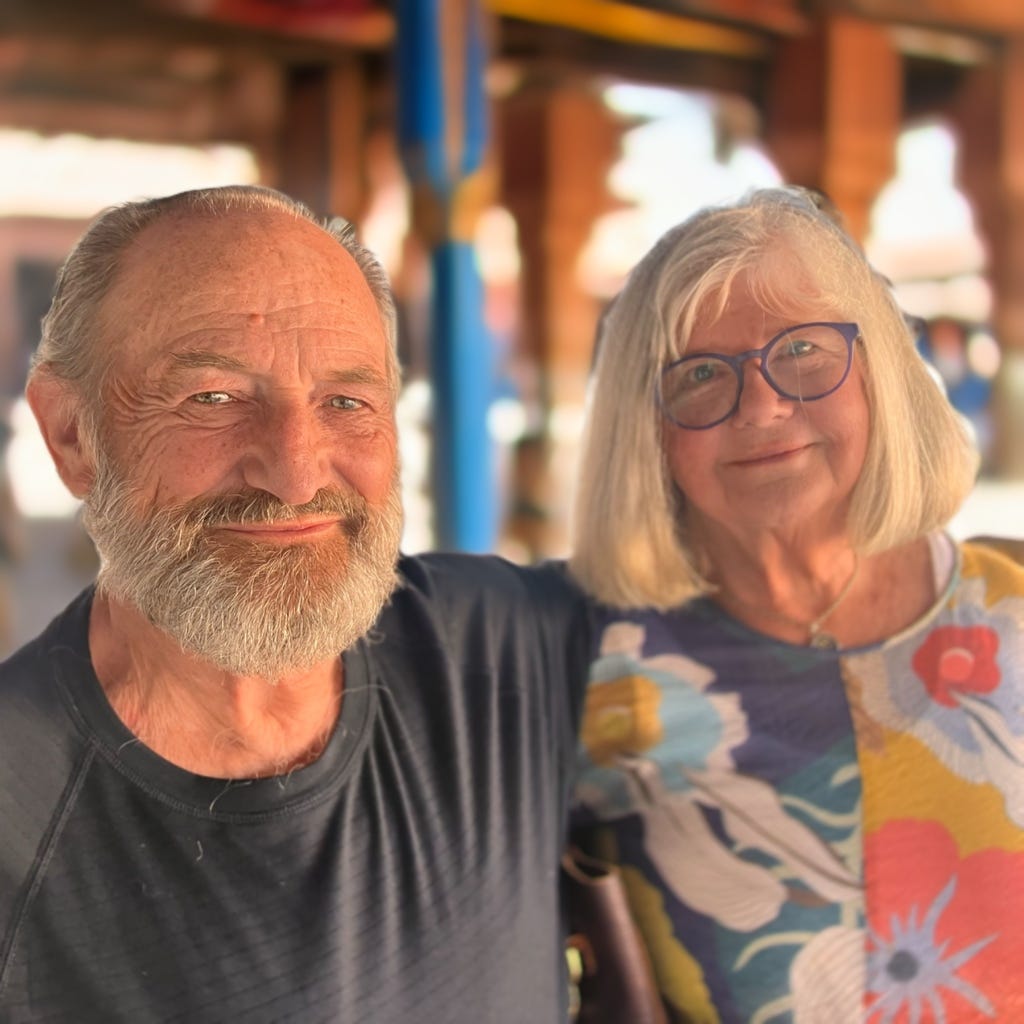
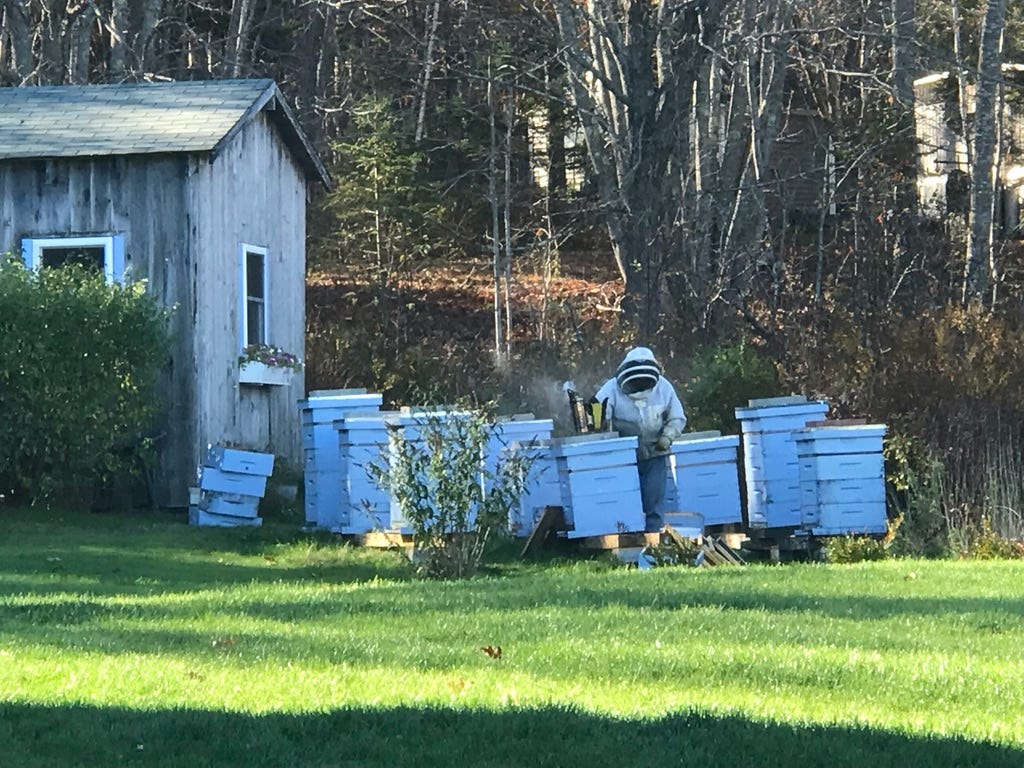
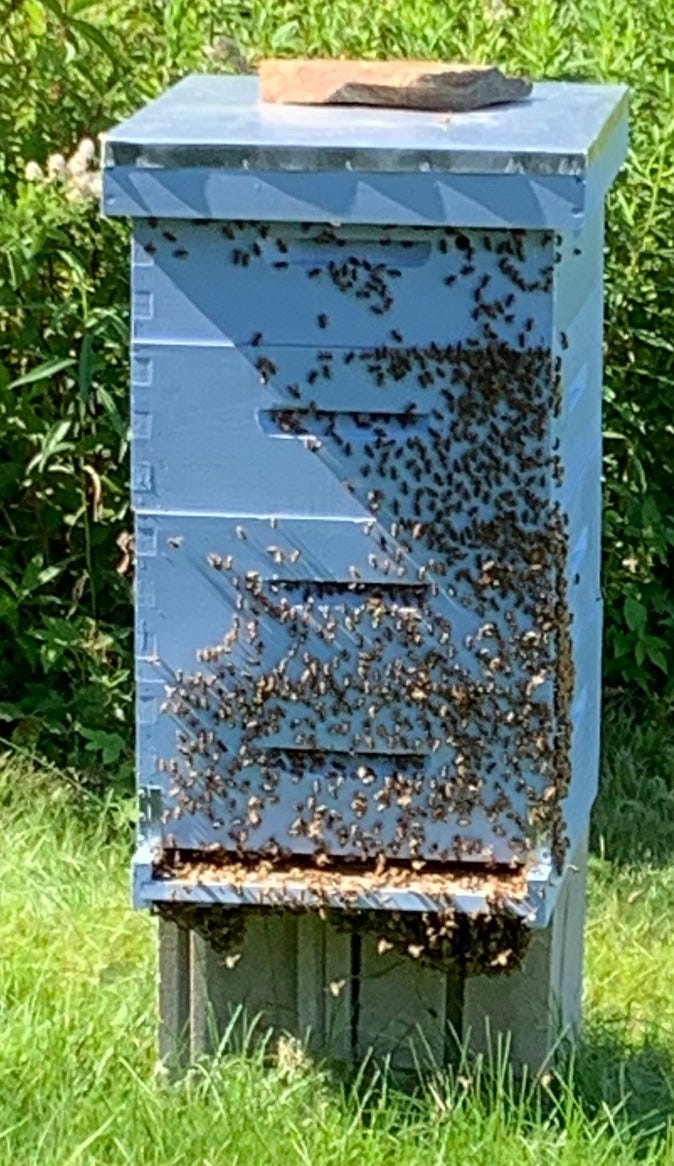
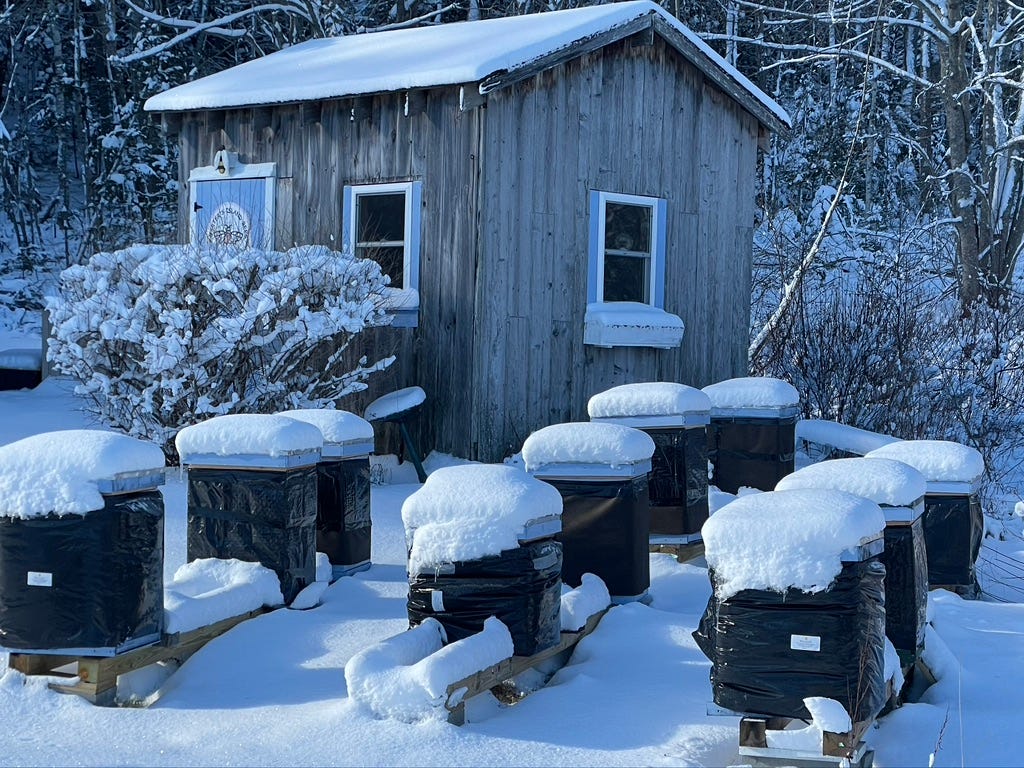
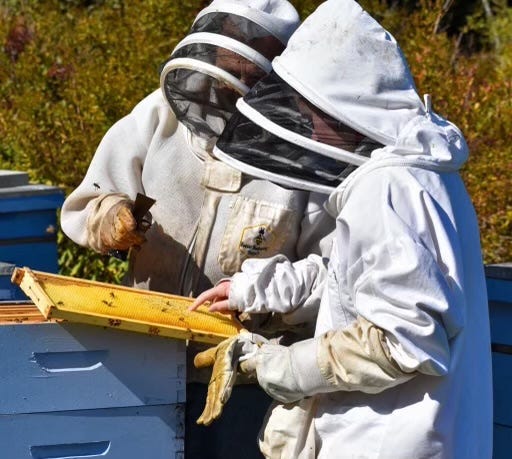
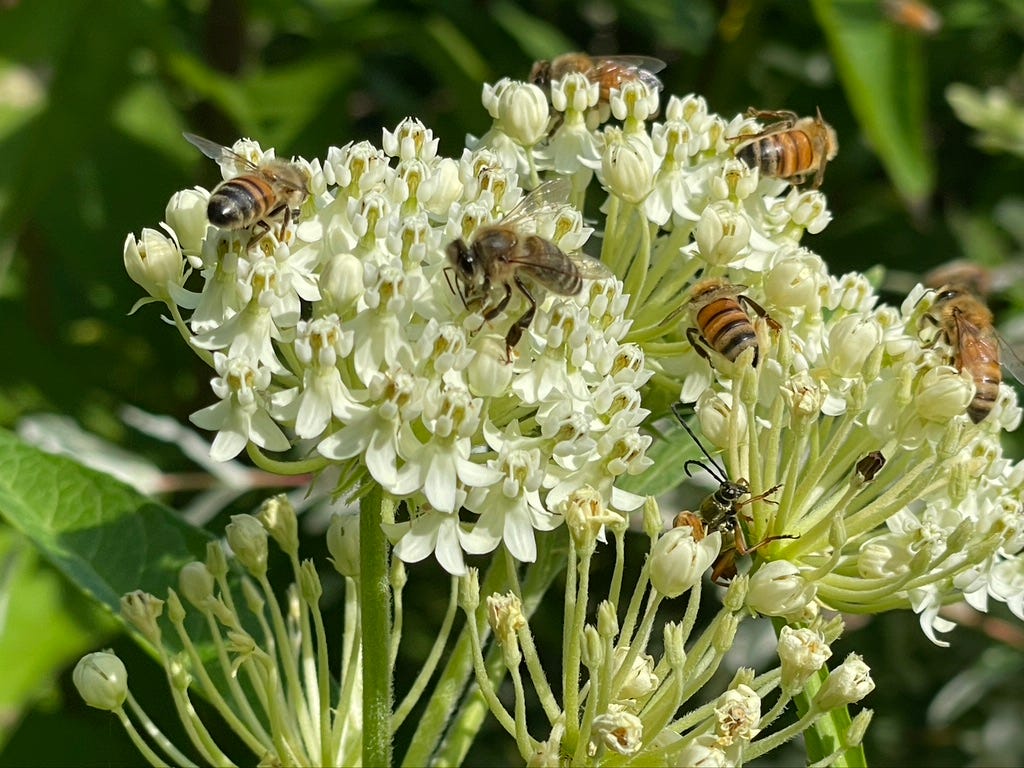
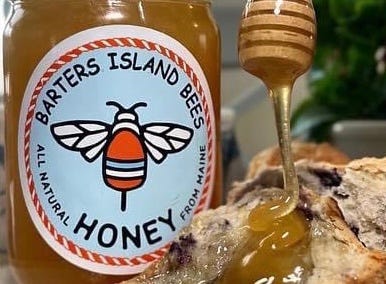
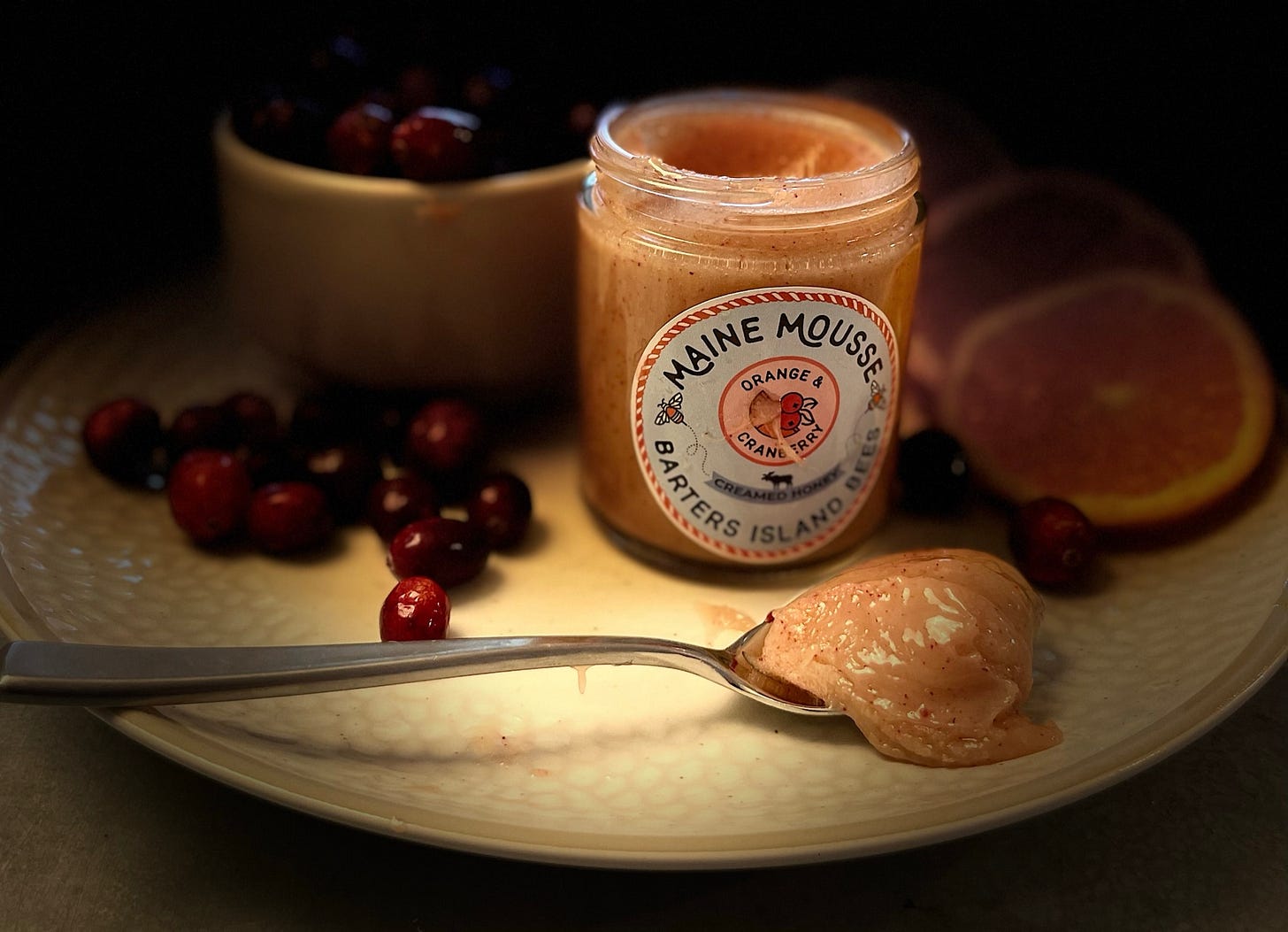
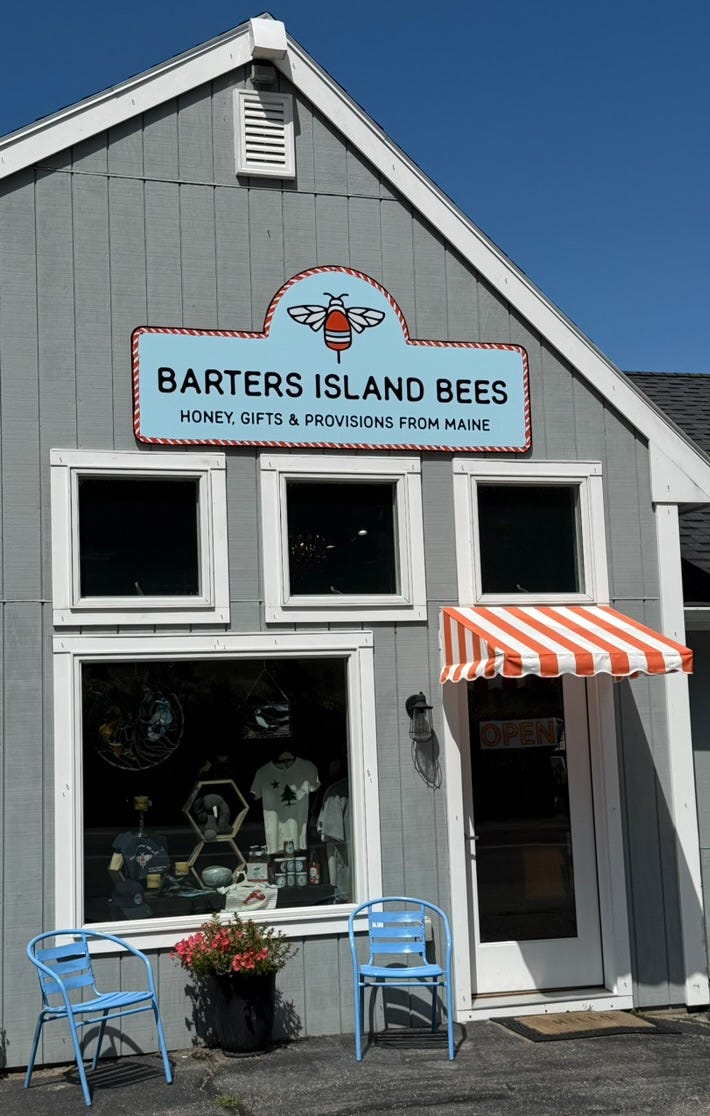
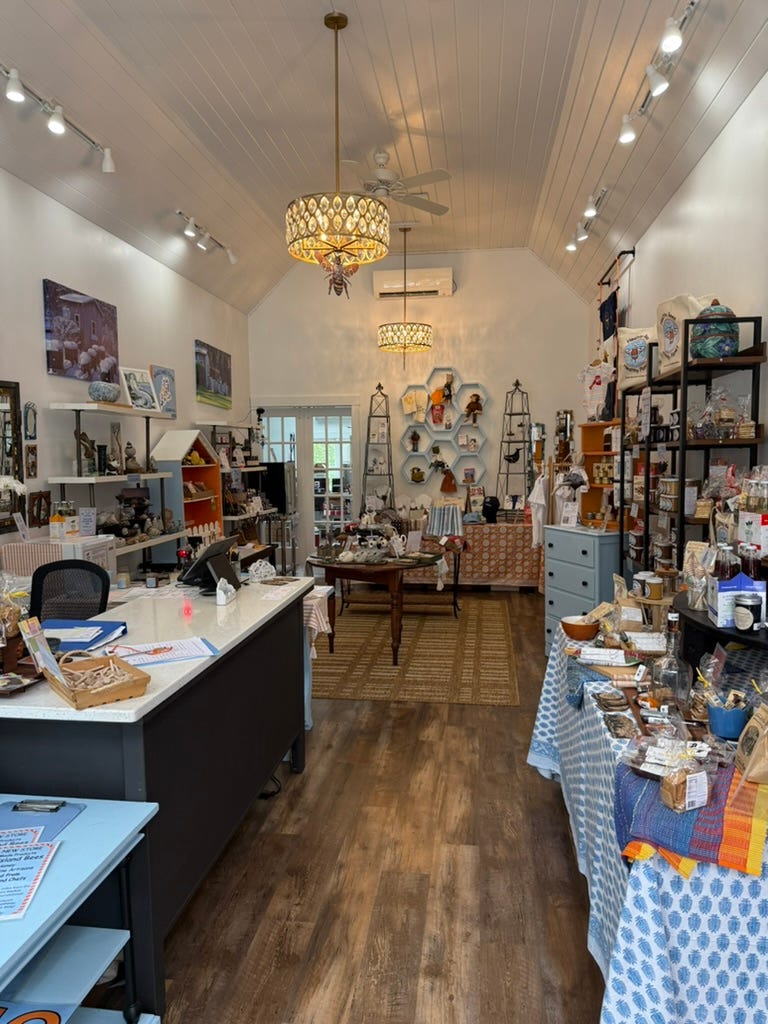

Bees are so important! Such an interesting post! And I'm glad Whittaker is getting better!!! 😊
Interesting post, Nancy. My daughter goes up near Barters Island fairly frequently so I'll have her check out this business. We love honey!